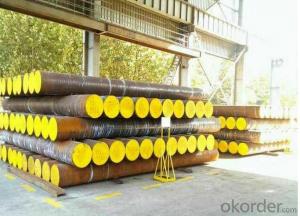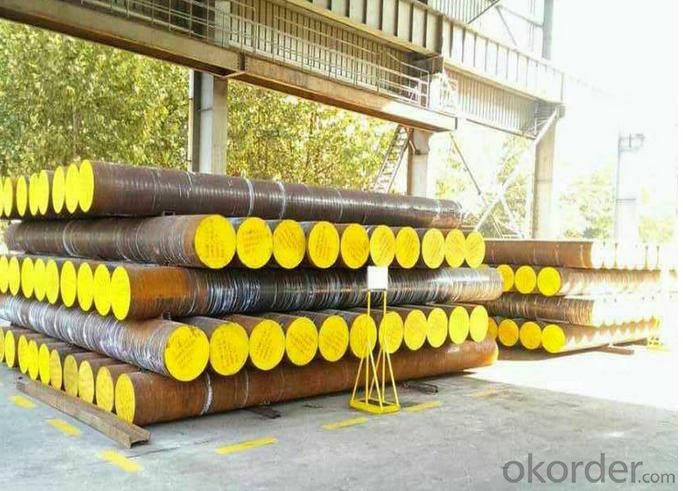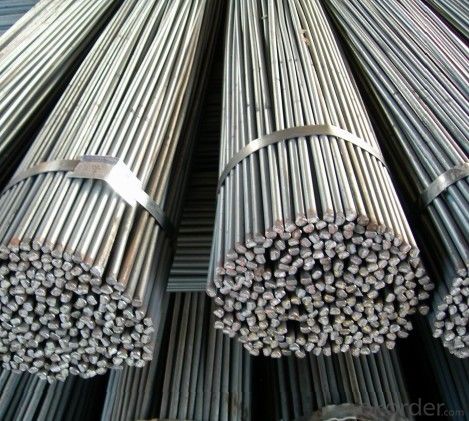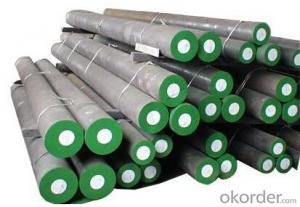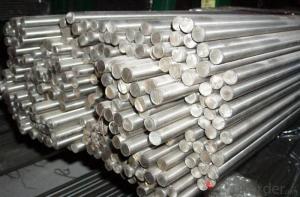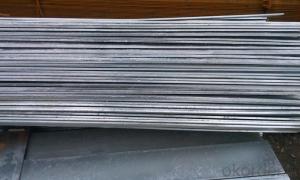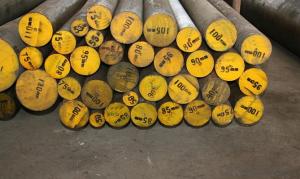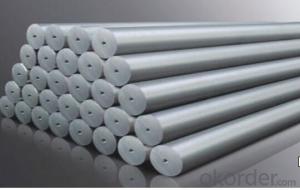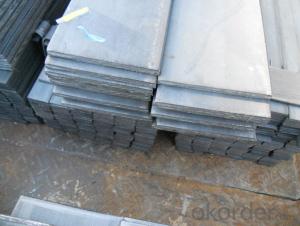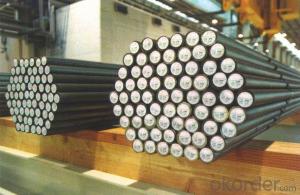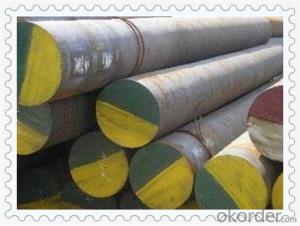Cold Drawn Hexagonal Steel Bar 4140 5140
- Loading Port:
- China main port
- Payment Terms:
- TT OR LC
- Min Order Qty:
- 25 m.t.
- Supply Capability:
- 1000 m.t./month
OKorder Service Pledge
OKorder Financial Service
You Might Also Like
Specification
Cold drawn hexagonal Steel Bar 4140 5140
Product information
1. Produce Standard: GB, AISI, ASTM, SAE, EN, BS, DIN, JIS
2. Produce processes: Smelt Iron -EAF smelt Billet - ESR smelt Billet -Hot rolled or forged get the steel round bar and plate
3. Heat treatment: Normalized / Annealed / Quenched+Tempered
4. Quality assurance: All order we can received third party inspection, You can let SGS, BV,.. and others test company test and inspect our products before Goods shipping.
Product detail
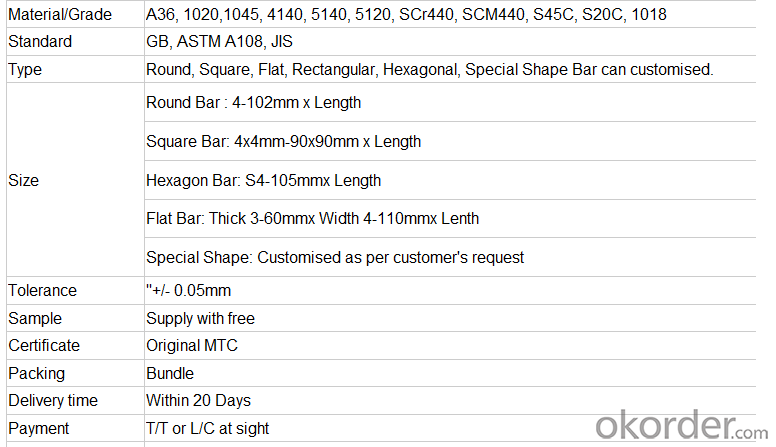
Product show
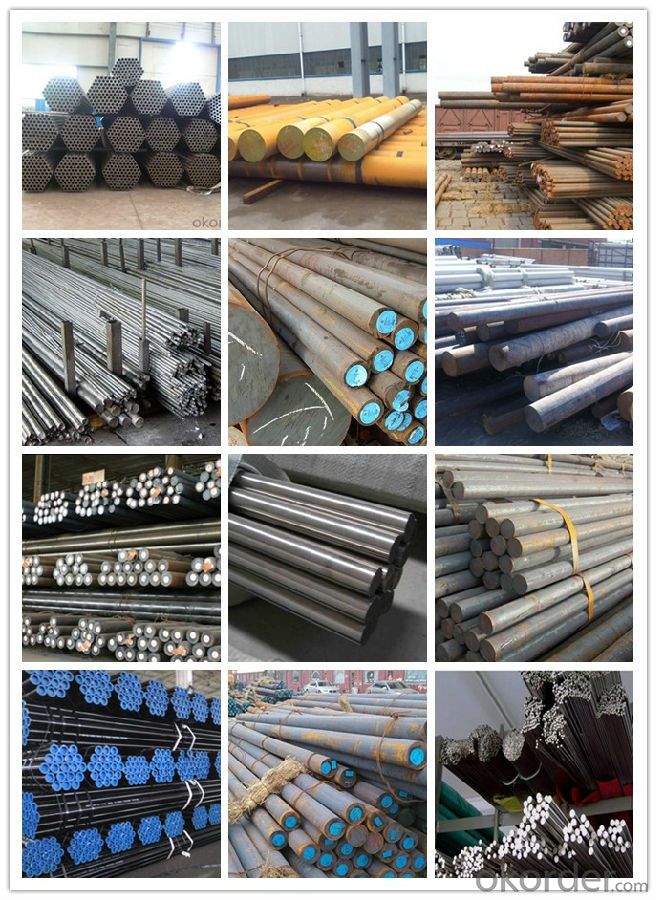
Work shop
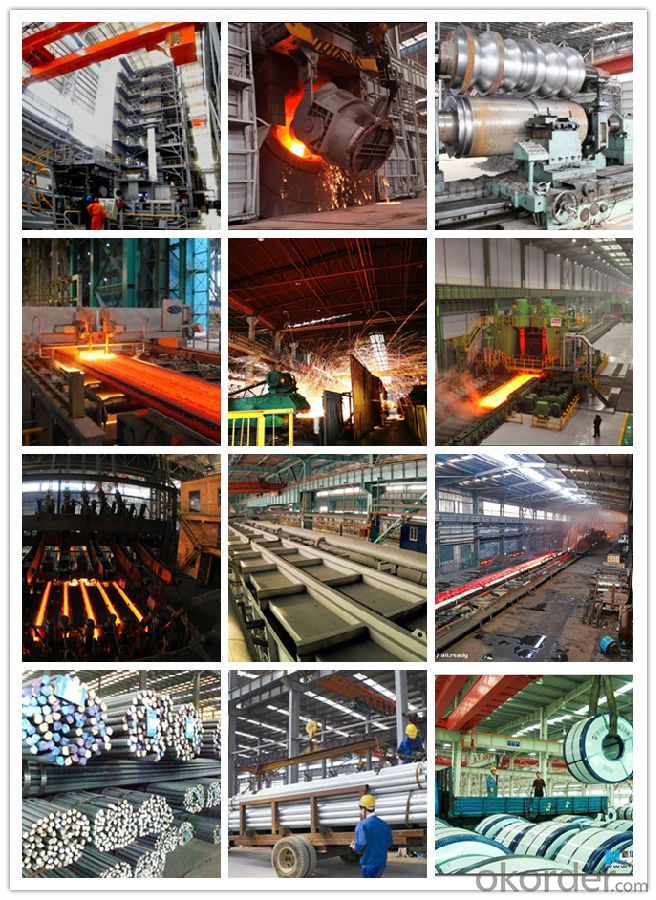
Our Services
* Welcome to contact us with your detailed inquiry, you will be replied within 24 hours.
* You are promised to obtain the best quality, price and service.
* We'd like to provide samples for your confirm.
- Q: How does special steel perform in high-speed machining operations?
- Special steel is specifically designed to perform well in high-speed machining operations. It has unique properties that make it ideal for cutting, drilling, and shaping at high speeds. Firstly, special steel has excellent thermal conductivity, which means it can effectively dissipate heat generated during the machining process. This is crucial in high-speed operations as excessive heat can cause tool wear and deformation. By efficiently transferring heat away from the cutting edge, special steel helps to prolong tool life and maintain dimensional accuracy. Secondly, special steel has high hardness and strength, which allows it to withstand the intense forces and pressures encountered during high-speed machining. This enables it to maintain its shape and integrity, reducing the chances of tool breakage or deformation. Moreover, its high strength also ensures that the machined parts have excellent durability and resistance to wear. In addition, special steel exhibits good machinability, meaning it can be easily cut and shaped with minimal effort. Its composition and microstructure are optimized for efficient chip formation and removal, ensuring smooth operations and reducing the risk of chip clogging or tool jamming. Furthermore, special steel often contains alloying elements such as chromium, molybdenum, and vanadium, which enhance its resistance to corrosion and wear. This is particularly important in high-speed machining operations, where the cutting tools and workpiece are in constant contact. The improved corrosion and wear resistance of special steel contribute to longer tool life and improved surface finish. Overall, special steel is specifically engineered to excel in high-speed machining operations. Its thermal conductivity, hardness, strength, machinability, and resistance to corrosion and wear make it a preferred choice for applications that require fast and precise metal removal.
- Q: How is special steel used in the manufacturing of machinery?
- Special steel, with its unique properties that make it highly suitable for the manufacturing of machinery, is an essential component in this process. It refers to a category of steel alloys that have been specifically designed and developed to possess exceptional strength, durability, and resistance to wear and tear. In various applications within the manufacturing of machinery, special steel is commonly used. One primary use is in producing machine components requiring high strength and toughness, such as gears, shafts, bearings, and fasteners. These components endure heavy loads, high temperatures, and harsh operating conditions, necessitating the ability to withstand these stresses without failure or deformation. Special steel provides the required strength and toughness for ensuring the longevity and reliability of these machine parts. Furthermore, special steel is utilized in manufacturing cutting tools and dies. Cutting tools, including drills, milling cutters, and lathe tools, require excellent hardness and wear resistance to endure the forces and abrasion encountered throughout the machining process. Dies, on the other hand, are used for shaping or forming materials and necessitate high strength and hardness to endure repetitive pressure and deformation. Special steel offers the necessary properties to enhance the performance and lifespan of these cutting tools and dies. Moreover, special steel frequently finds application in constructing machine frames and structural components. Its strength and rigidity make it ideal for supporting heavy loads and maintaining overall machinery stability. By incorporating special steel into machine frame construction, manufacturers can ensure the structural integrity and durability of the machinery, which is crucial for safe and efficient operation. In conclusion, special steel plays a vital role in the manufacturing of machinery by providing the necessary strength, durability, and wear resistance for critical machine components, cutting tools, and structural elements. Its unique properties make it indispensable in producing high-performance machinery capable of enduring the demanding conditions of various industries.
- Q: How does special steel contribute to the pharmaceutical industry?
- Special steel plays a crucial role in the pharmaceutical industry by offering exceptional strength, corrosion resistance, and durability. It is used in the manufacturing of various equipment and components such as storage tanks, reactors, piping systems, and precision instruments. The unique properties of special steel ensure the integrity and purity of pharmaceutical products, prevent contamination, and enable efficient and safe production processes.
- Q: Can special steel be used in the production of springs for automotive suspension?
- Yes, special steel can be used in the production of springs for automotive suspension. Special steel, such as alloy steel or high-carbon steel, offers excellent strength, durability, and resistance to fatigue, making it suitable for handling the heavy loads and constant vibrations involved in automotive suspension systems.
- Q: How does special steel contribute to the thermal conductivity of products?
- Special steel can significantly contribute to the thermal conductivity of products due to its unique composition and properties. Special steel is manufactured with specific alloying elements, such as chromium, nickel, molybdenum, or vanadium, which enhance its thermal conductivity. These alloys help in the efficient transfer of heat by increasing the free electron density within the steel. The presence of alloying elements in special steel improves its lattice structure, allowing for better heat transfer. The increased free electron density enables quick and efficient movement of thermal energy through the material. As a result, special steel can effectively conduct heat from one area to another, making it ideal for applications requiring high thermal conductivity. Furthermore, special steel is often processed using advanced techniques like heat treatment, forging, or rolling, which further optimize its properties. These processes refine the microstructure of the steel, reducing impurities and improving its thermal conductivity. The resulting steel product exhibits enhanced heat transfer capabilities and provides efficient thermal management. The high thermal conductivity of special steel makes it highly desirable for various industries and applications. It is commonly used in the manufacturing of heat exchangers, boilers, furnaces, and other thermal equipment where efficient heat transfer is crucial. Additionally, special steel is often employed in electrical appliances, such as stovetops or induction cookers, where rapid and uniform heat distribution is necessary. In summary, special steel contributes to the thermal conductivity of products by utilizing specific alloying elements and advanced processing techniques to enhance its heat transfer capabilities. Its high thermal conductivity makes it a valuable material for various industries, ensuring efficient heat management and optimal performance of thermal equipment and appliances.
- Q: How does special steel perform in magnetic applications?
- Special steel performs well in magnetic applications due to its high magnetic permeability and low electrical conductivity. This allows it to efficiently conduct and concentrate magnetic fields, making it ideal for various magnetic devices and applications such as transformers, motors, generators, and magnetic sensors. Additionally, special steel can exhibit excellent magnetic properties such as high saturation magnetization and low coercivity, making it capable of generating strong magnetic fields and maintaining magnetization even in challenging conditions.
- Q: Is special steel resistant to chemical corrosion?
- Yes, special steel is generally resistant to chemical corrosion. Special steel, also known as stainless steel, is a type of alloy that contains a minimum of 10.5% chromium. The addition of chromium in the steel composition forms a passive oxide layer on the surface, which acts as a protective barrier against corrosion. This oxide layer is highly stable and prevents the steel from reacting with various chemicals and corrosive substances. Additionally, special steel may also contain other alloying elements such as nickel, molybdenum, and titanium, which further enhance its resistance to chemical corrosion. These elements increase the steel's ability to withstand exposure to acids, alkalis, salts, and other corrosive agents commonly found in industrial and environmental settings. However, it is important to note that the resistance of special steel to chemical corrosion may vary depending on the specific grade and composition. Different grades of stainless steel offer different levels of corrosion resistance, and it is crucial to select the appropriate grade based on the intended application and the specific corrosive environment. In summary, while special steel is generally resistant to chemical corrosion, the specific resistance can vary depending on the grade and composition. Therefore, it is essential to consider the specific requirements and consult with experts to choose the most suitable special steel for a particular application.
- Q: How does special steel perform in terms of fatigue strength?
- Special steel generally performs very well in terms of fatigue strength. Due to its unique composition and production process, special steel exhibits high resistance to the progressive and cumulative damage caused by cyclic loading. This makes it highly durable and reliable, even under repeated stress and strain, making it a preferred material for applications that require exceptional fatigue performance, such as aerospace, automotive, and heavy machinery industries.
- Q: What are the different surface treatments applied to special steel?
- Enhancing the properties and improving the performance of special steel can be achieved through the application of different surface treatments. Commonly used treatments include: 1. Utilizing heat treatment involves subjecting the steel to specific temperatures and controlling the cooling process. This treatment enhances the steel's hardness, strength, toughness, wear resistance, and corrosion resistance. 2. Coating the surface of special steel with a protective layer is another frequently used surface treatment. Electroplating, hot-dip galvanizing, and powder coating are some methods employed. Coatings provide added corrosion resistance, enhance the appearance of the steel, and prolong its lifespan. 3. Nitriding is a process that diffuses nitrogen into the steel's surface at high temperatures. This forms a tough outer layer, improving wear resistance and fatigue strength while maintaining core toughness. 4. Shot peening is a mechanical treatment that involves bombarding the steel surface with small spherical particles made of steel or ceramic. This induces compressive stresses in the surface layer, improving fatigue strength and resistance to stress corrosion cracking. 5. Passivation is a chemical treatment used to eliminate impurities and contaminants from the steel's surface, typically by immersing it in an acid solution. This process restores the natural corrosion resistance of stainless steel by forming a protective oxide layer. 6. Electro-polishing is an electrochemical process that removes a thin layer of material from the steel's surface. It improves surface finish, eliminates micro-roughness, and enhances corrosion resistance. These are just a few examples of the various surface treatments applicable to special steel. The choice of treatment depends on the specific requirements of the application and the desired properties of the steel.
- Q: What are the main applications of special steel in the medical field?
- Special steel is widely used in the medical field for various applications. Some of the main applications include surgical instruments, implants, and medical devices. Surgical instruments such as forceps, scalpels, and scissors are often made from special steel due to its high strength, durability, and corrosion resistance. Implants, such as joint replacements and dental implants, are commonly made from special steel alloys that provide strength, biocompatibility, and resistance to wear and tear. Additionally, special steel is used in the production of medical devices like needles, catheters, and stents, where its properties contribute to their effectiveness and safety.
Send your message to us
Cold Drawn Hexagonal Steel Bar 4140 5140
- Loading Port:
- China main port
- Payment Terms:
- TT OR LC
- Min Order Qty:
- 25 m.t.
- Supply Capability:
- 1000 m.t./month
OKorder Service Pledge
OKorder Financial Service
Similar products
Hot products
Hot Searches
Related keywords
